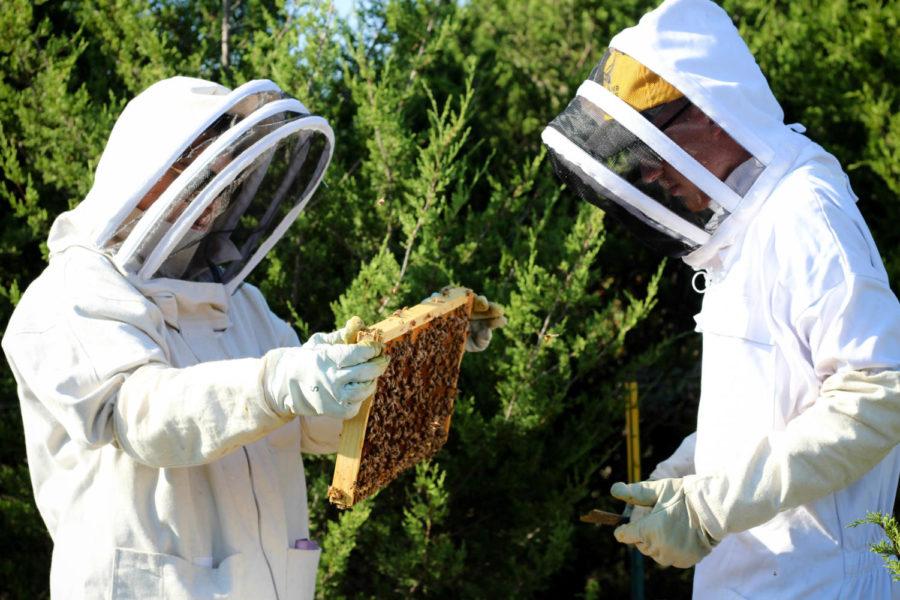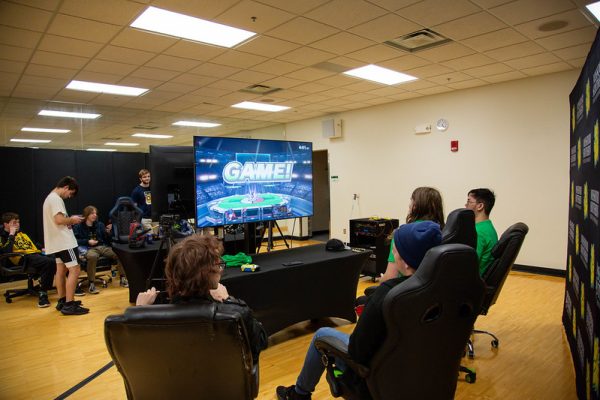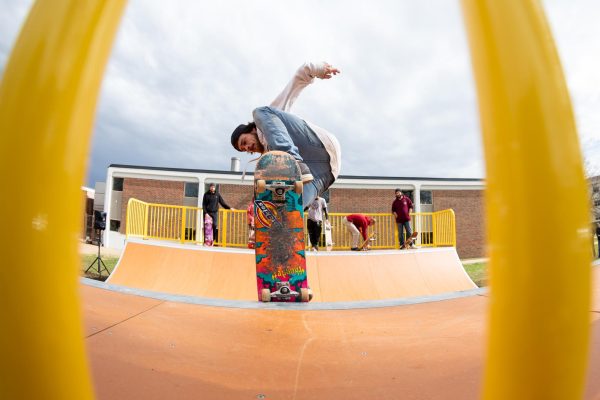Pollinator Club ‘abuzz’ with new project
Dr. Mary Kilmer, associate professor of biology and environmental health, (left) works with research student Khye Hill at the bee hive on the Missouri Southern prairie located behind College Heights Christian Church on Newman Road.
Since April 2018, things have been buzzing around the Missouri Southern prairie.
Located behind College Heights Christian Church, on Newman Road, the prairie is now home to an assortment of beehives, under the management of Dr. Mary Kilmer.
Kilmer, professor of biology and environmental health, has two goals for the project: use the hives for educational purposes, and as the foundation of the new beekeeping club.
The idea for raising bees presented itself during fall 2017 in one of Kilmer’s biology courses during a discussion about decreasing bee populations due to multiple issues including disease and habitat loss.
“Every winter, we’ve been losing anywhere from 20 to 30 percent of the bees and no one was really sure exactly why,” Kilmer said.
“One of the ways they’ve tried to counteract this is by encouraging people to take up beekeeping on a private scale – so having hives in their backyard, having hives in cities on rooftops, whatever it might be.”
From the class, Kilmer decided to bring the idea to fruition with the help of her students.
“They wanted to know if we had any hives on campus or if we could get hives,” Kilmer said. “So I looked into it.”
“We worked with the Joplin Beekeeping Association and they were really enthusiastic about it, so they provided hives to us.”
Kilmer said volunteers with the association has served as mentors for the project.
“They put us in contact with people that gave us bees,” Kilmer said. “My research student had connections at Joplin Greenhouse, so he talked to them and they provided the suits for us.”
“Everything came together really quickly and really beautifully. More than I could have ever imagined. So the project just kind of took off on its own.”
Research student Khye Hill is working alongside Kilmer tending to, and researching the bees.
“It’s been really cool working with Kilmer,” Hill said. “She was my first choice for a research project. I knew I wanted to get involved in something. I was just trying to keep my eyes and ears open, trying to figure out what I can do for research.
“[Then] the beekeeping thing spun off… It’s been a lot of fun,” Hill said.
One piece of advice Kilmer gives students interested in conducting their own research is to not be scared of the bees.
“Even if it’s something like, a hive full of 50,000 bees,” she said. “there’s really great opportunities out there all over the place.”
“You just have to be willing to try something new.”
The Pollinator Club is open to anyone interested in learning about bees or beekeeping. For more information, persons interested may contact Kilmer at [email protected].
Your donation will support the student journalists of Missouri Southern State University. Your contribution will allow us to purchase equipment and cover our annual website hosting costs.

































